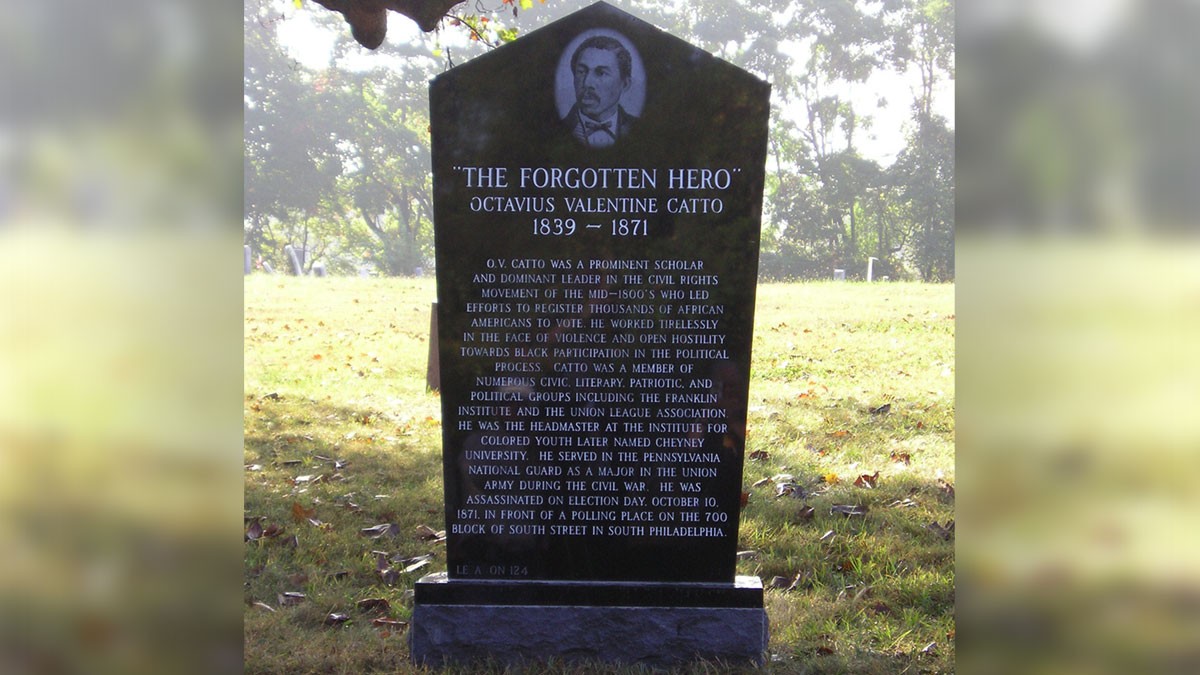
Oct. 10, 1871

Octavius Catto, a 32-year-old educator and civil rights activist who had pushed for Black Americans to be treated as equal citizens, was assassinated during an election day uprising in Philadelphia, which had the nation’s largest population of free African Americans.
Born free in Charleston, South Carolina, he moved north with his family, where he became an educator, minister, activist and athlete.
When the Civil War came, he recruited Black soldiers for the Union Army. After the war ended, he fought for the desegregation of Philadelphia’s trolley cars. He played a role in the passage of a bill that barred segregation on transit systems. A conductor’s refusal to admit Catto’s fiancée to a streetcar helped bring about the new law.
On election day, a mob of white thugs roamed the community, attacking Black residents who tried to vote. One of those men, Frank Kelly, confronted Catto, shooting him in the heart. Kelly escaped, but was arrested and returned to trial, where an all-white, all-male jury acquitted him.
Catto’s headstone remembers him as “the forgotten hero.” The city of Philadelphia has erected a monument in his honor outside the city hall. It was the first public monument in the city to honor a specific Black American.

